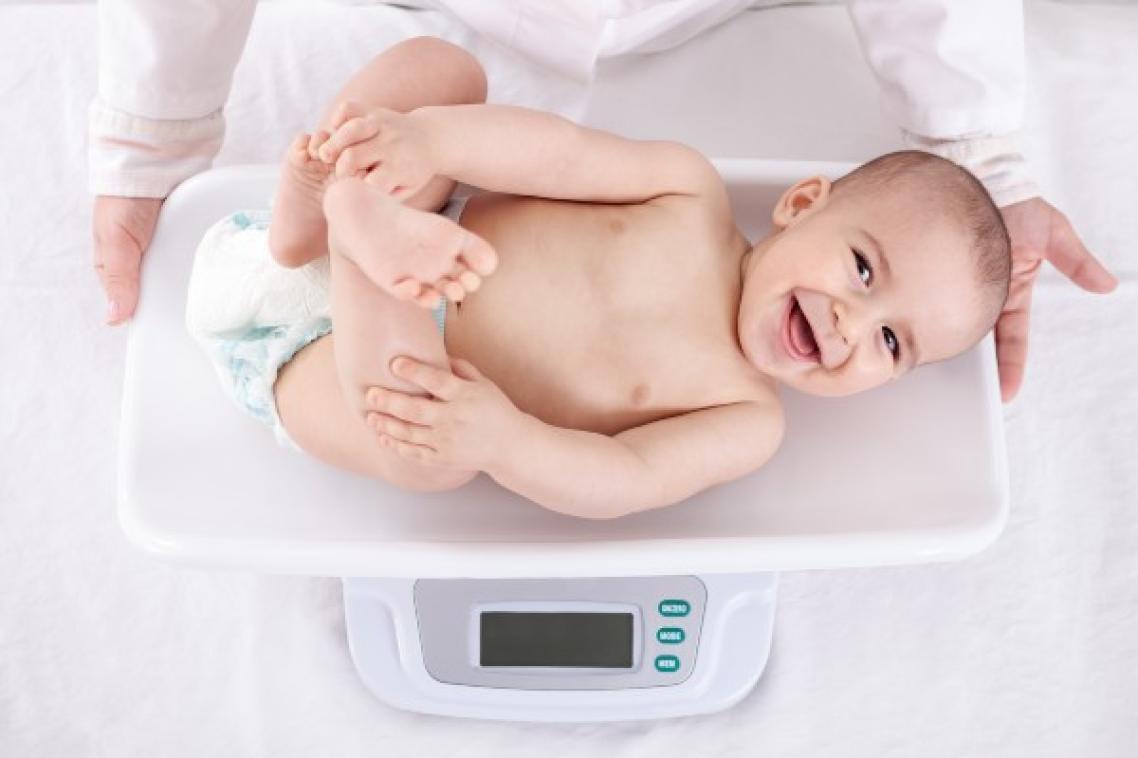A new way to prevent childhood obesity

For the first time in Australia, researchers can accurately predict if babies are at risk of childhood obesity by the age of eight to nine years of age.
Researchers from The University of Queensland have developed and validated the i-PATHWAY model, which uses simple risk factors mostly gathered during routine doctor visits at 12 months of age to predict future childhood obesity.
Dr Oliver Canfell, Research Fellow and dietitian with the UQ Centre for Health Services Research said i-PATHWAY could calculate the risk of childhood obesity with 74.6 per cent accuracy.
“Risk factors used are the baby’s weight change in the first year, mother’s pre-pregnancy height and weight, father’s height and weight, baby’s sleep pattern in the first year, premature birth, if the mother smoked during pregnancy and if the baby is female,” Dr Canfell said.
Dr Canfell said obesity prevention was most effective in the first 1000 days of life and that i-PATHWAY could be used in this period to prioritise prevention for babies at high risk.
“Almost one-in-four Australian children live with an unhealthy weight,” he said.
“Identifying babies at high risk means that clinicians and families can be proactive together to implement preventive actions that are family-based.
“We chose to predict childhood obesity at age eight or nine years because the older the child with obesity, the more likely they are to live with obesity as an adult.
“This is critical to help prevent obesity in the long-term.”
The i-PATHWAY study used data from almost 2000 children followed from birth to the age of nine in the ‘Raine Study’ in Western Australia.
“The data has shown predicting childhood obesity in Australia is possible, but before clinicians – such as GPs and Child Health Nurses – can use i-PATHWAY in practice, we need to test the model in a different group of children to confirm its predictions are still valid,” he said.
“Once i-PATHWAY is validated in a different group, we can then test i-PATHWAY in practice and see how effective it is in helping to prevent childhood obesity.”
Health and Wellbeing Queensland Chief Executive Dr Robyn Littlewood, who co-supervised Dr Canfell’s PhD research program, said supporting children and families in the early years had the potential to transform lives.
“Every single child and family is so important, which is why approaches based on prevention are critical,” Dr Littlewood said.
“As Queensland’s prevention agency, we’re empowering clinicians to integrate prevention into their practice and work with them on referral pathways that support Queensland children and families in their homes and communities.
“Our prevention programs can complement i-PATHWAY in the future.”
Dr Canfell now works with the Queensland Digital Health Research Network at UQ.
“That network was just recognised by UQ as a Global Change Initiative and that is a gateway to the next phase of research that will transform i-PATHWAY into a useful clinical tool,” he said.
The i-PATHWAY research was published in the Journal of Paediatrics and Child Health and was co-authored by Dr Robyn Littlewood, Dr Olivia Wright and Dr Jacqueline Walker. (DOI:10.1111/jpc.15436).
Media: Dr Oliver Canfell, o.canfell@uq.edu.au, 3346 7003, 0434 911 538; Faculty of Medicine Communications, med.media@uq.edu.au, 3365 5118, 0436 368 746
Topics
Related articles

Australia needs doctors – so why are hundreds of qualified international physicians unable to work?

Greater attention needed on community service workforce
Media contact
UQ Communications
communications@uq.edu.au
+61 429 056 139
